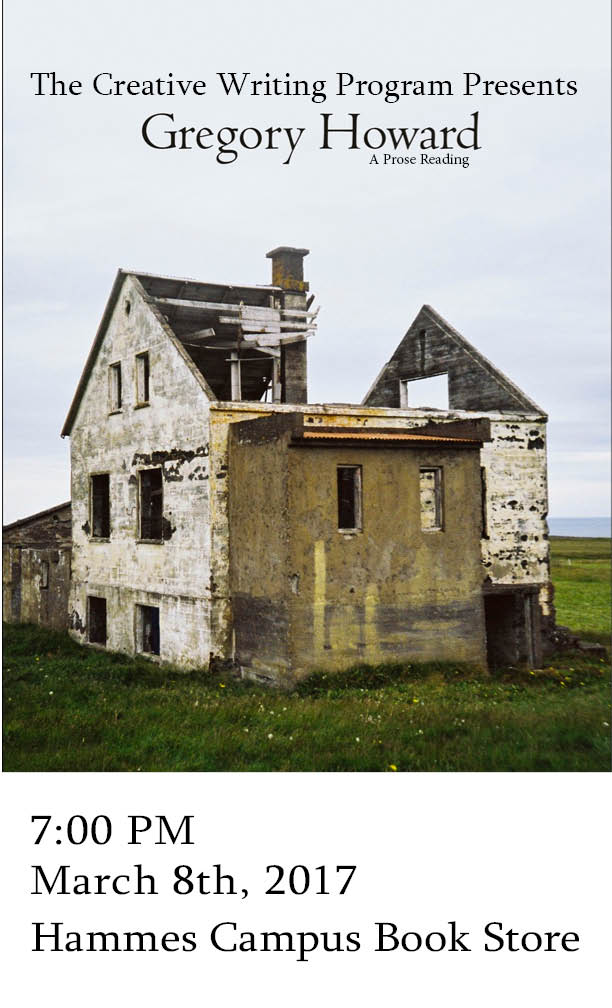
How often do you write? That’s a question I would rather not answer. How do you write? Now that’s something I can tackle.

I look for things that sound odd. Listen for stuff that looks weird. The other day when I was in the airport the PA system was looking for a McKenna Reed, asking them to come to the water fixture to meet their father. Two things struck me-
- Why not just call it a water fountain? Is it against airport law to call a fountain a fountain? Were they trying to impress their supervisor or coworkers?
- I wished I was McKenna Reed because it’s been awhile since I’ve seen my own father.
Thus the announcement made it into my little black book, along with the time I had spread olive oil on a pan in the shape of the USA and some ruminations on the inescapable solitude our human lives made while sitting in a mostly inconsequential lecture.
That was just part one. I’m putting you to sleep, aren’t I? Perhaps this man from Bangor can do you better.
Gregory Howard will read Wednesday, March 8, 2017, at Hammes Campus Bookstore on Notre Dame. The reading begins at 7:00 PM. It is free and open to the public.
Gregory Howard teaches creative writing, contemporary literature, and film studies at the University of Maine. His first novel Hospice was published by FC2 in June 2015. His fiction and essays have appeared in Web Conjunctions, Harp & Altar, and Tarpaulin Sky, among other journals. Hospice follows the odd and lovely but also frightening life of Lucy, everyday neighborhoods become wonderlands where ordinary houses reveal strange inmates living together in monastic seclusion, wayward children resort to blackmail to get what they want, and hospitals seem to appear and disappear to avoid being found. Replete with the sense that something strange is about to happen at any moment, Hospice blurs the borders between the mundane and miraculous, evoking the intensity of the secret world of childhood and the distressing and absurd search for a place to call home.
In his essay The Object is Always Magic: Narrative as Collection, Howard shares his perspective on creating stories. Collecting miscellaneous oddities including a rusty saw and glass eyeballs has prepared him for the life of a writer. The mess he made created fragments and juxtapositions of objects, which are where stories are born. The collection of junk is fleshed out into literature through precision in language that surprises, strangeness that comes out of what is habit. All this is possible through the difficult act of what Howard calls paying attention.
So come on down to Hammes on the 8th of March to experience the story-making magic that hides behind every detail and fragment. If enough people show, I’ll even post part two of my experiences in writing. Maybe.
-Moon